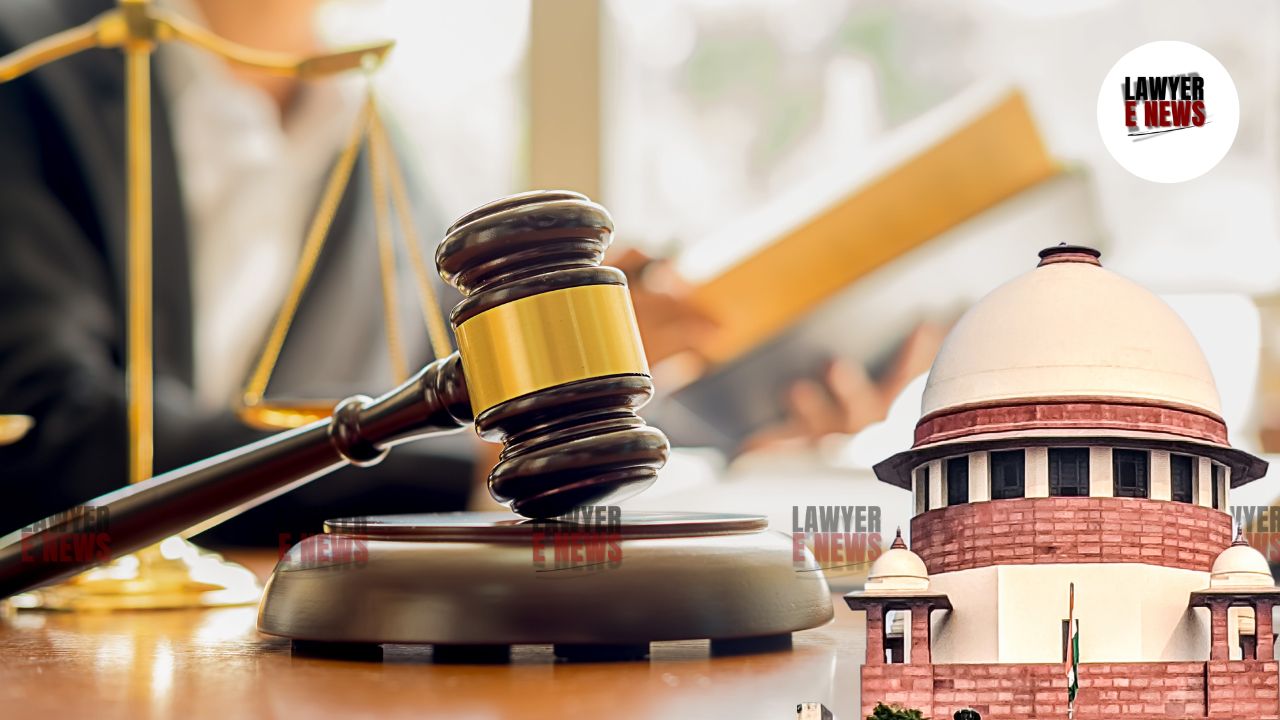-
by Admin
15 February 2026 5:35 AM



Cases Assigned to a Judge with Just Three Pending Cases to Ensure Swift Trial: Supreme Court Records Madras High Court's Report. On October 25, 2024, the Supreme Court of India was informed by the Madras High Court that the corruption and cheating cases arising from the high-profile cash-for-jobs scam involving Tamil Nadu Minister Senthil Balaji have now been transferred to a Special Court with a reduced caseload. This transfer aims to expedite the trial in a case involving over 2,000 accused and 600 prosecution witnesses, ensuring the presiding judge is not overburdened. A bench comprising Justice Abhay Oka and Justice Augustine George Masih acknowledged the High Court’s steps to facilitate a fair and efficient judicial process.
The cash-for-jobs scam case traces back to Senthil Balaji’s tenure as Tamil Nadu’s Transport Minister from 2011 to 2016. Balaji and his associates are accused of accepting bribes from job-seekers in exchange for securing positions within the Transport Department. Numerous complaints were filed by unsuccessful candidates who alleged that they paid substantial sums of money but were not granted the promised jobs. Consequently, Balaji faces charges under Section 420 of the Indian Penal Code (IPC) for cheating and several sections of the Prevention of Corruption Act, 1988. In June 2023, the Enforcement Directorate (ED) registered a money laundering case based on these allegations and subsequently arrested Balaji.
Earlier, the Madras High Court had denied Balaji's bail, finding his claims of evidence tampering unsubstantiated. The High Court observed that his continued influence as a Minister without portfolio after his arrest could potentially compromise witnesses and affect the trial’s fairness.
The Supreme Court previously emphasized the need for the cash-for-jobs scam trial to be handled by a judge with a manageable caseload, given the scale and complexity of the case. On September 30, 2024, the Supreme Court directed the Madras High Court to reassign the trial to a judge who would not be overburdened with other cases. The Court stressed that a fair trial in this matter was crucial, as the case involved numerous accused and a large number of witnesses, making it imperative that the judge assigned could dedicate adequate time and attention.
In compliance with this order, the Madras High Court assigned the case to Special Court No. 1, which is presided over by a district judge with only three pending cases as of the date of the report. Justice Abhay Oka and Justice Augustine George Masih recorded in their order:
“Pursuant to the order of this court dated 30th September, 2024, there is a report filed by the Registrar General of the High Court of Madras. The report indicates that a decision has been taken to transfer the cases listed in the order dated 30th September, 2024 to the file of Special Court no. 1 (in the cadre of district judge) for trial of criminal cases relating to MP and MLA, Chennai where number of cases pending are just three as on the date of the report.”
Request for Appointment of a Special Prosecutor
During the proceedings, Senior Advocate Gopal Sankarnarayanan, representing the complainants, raised concerns about the impartiality of the prosecution. He argued that the current Public Prosecutor’s reporting chain, which ultimately leads to the Home Ministry headed by the Chief Minister, could undermine the integrity of the trial. He pointed out that Chief Minister Stalin has publicly supported Balaji, which may compromise the prosecution’s independence. Sankarnarayanan contended:
“The public prosecutor reports to the Director of Prosecution who reports to the Home Ministry which is headed by the Chief Minister. Chief Minister Mr. Stalin has tweeted openly saying that Senthil Balaji has been wrongly incarcerated, he has been framed etc. This chain of command will not work if justice is to be seen to be done. I am asking that a special prosecutor be appointed by this court to whom the prosecutor will report. Let there be no reporting to the very accused indirectly.”
Justice Oka inquired whether the Supreme Court had the authority to direct a prosecutor to report independently from the traditional chain of command. Sankarnarayanan cited the precedent set in the 2G spectrum case, where a similar arrangement was implemented, and informed the Court that he would file a formal application on the matter.
Delay in Trial and Supreme Court’s Observations on Predicate Offences
Balaji’s legal team has argued that the trial delays infringe upon his right to a fair and speedy trial. The Supreme Court previously noted the logistical challenges posed by the large number of accused and witnesses involved in the predicate offence. The Court raised questions about the feasibility of moving forward with the trial under the Prevention of Money Laundering Act (PMLA) without first completing the trial in the predicate offence, which forms the basis for the money laundering charges.
The Supreme Court’s order has paved the way for an expedited trial in the cash-for-jobs scam by assigning it to a dedicated judge with minimal pending cases. However, the demand for an independent special prosecutor raises further questions about prosecutorial independence and fairness in cases involving political influence. The matter is still under consideration, and the complainants’ legal counsel is expected to submit a formal application regarding the appointment of a special prosecutor.
Date of Decision: October 25, 2024
Y. Balaji v. Assistant Commissioner of Police Central Crime Branch (Job Racketing) And Anr.
Case No.: MA 1381/2024 in Crl.A. No. 1677/2023
